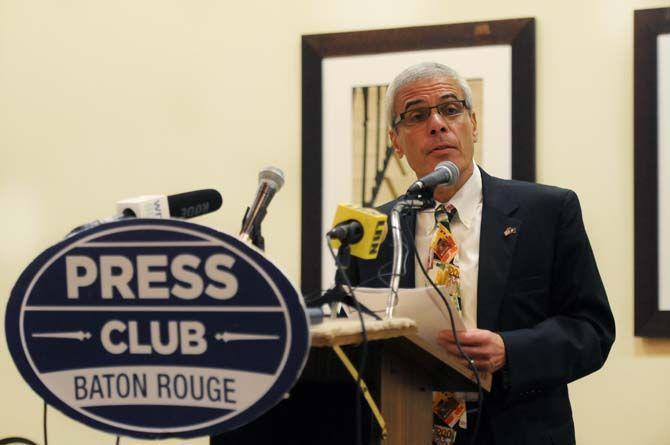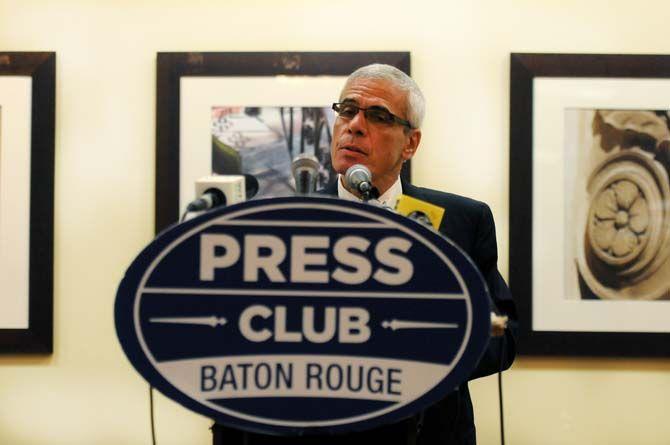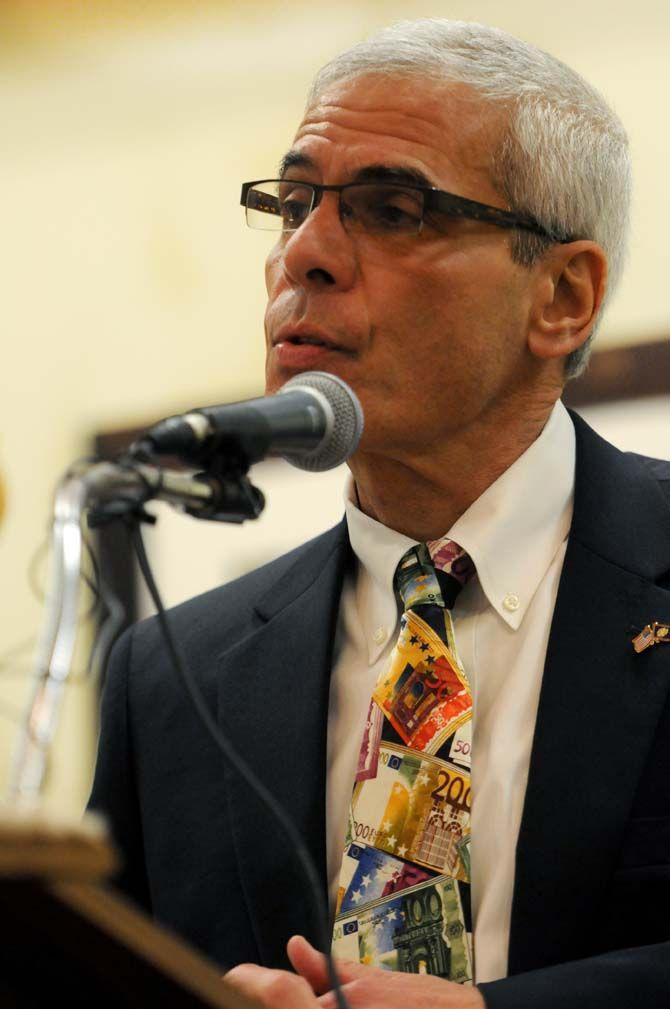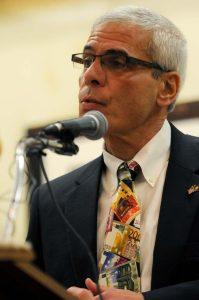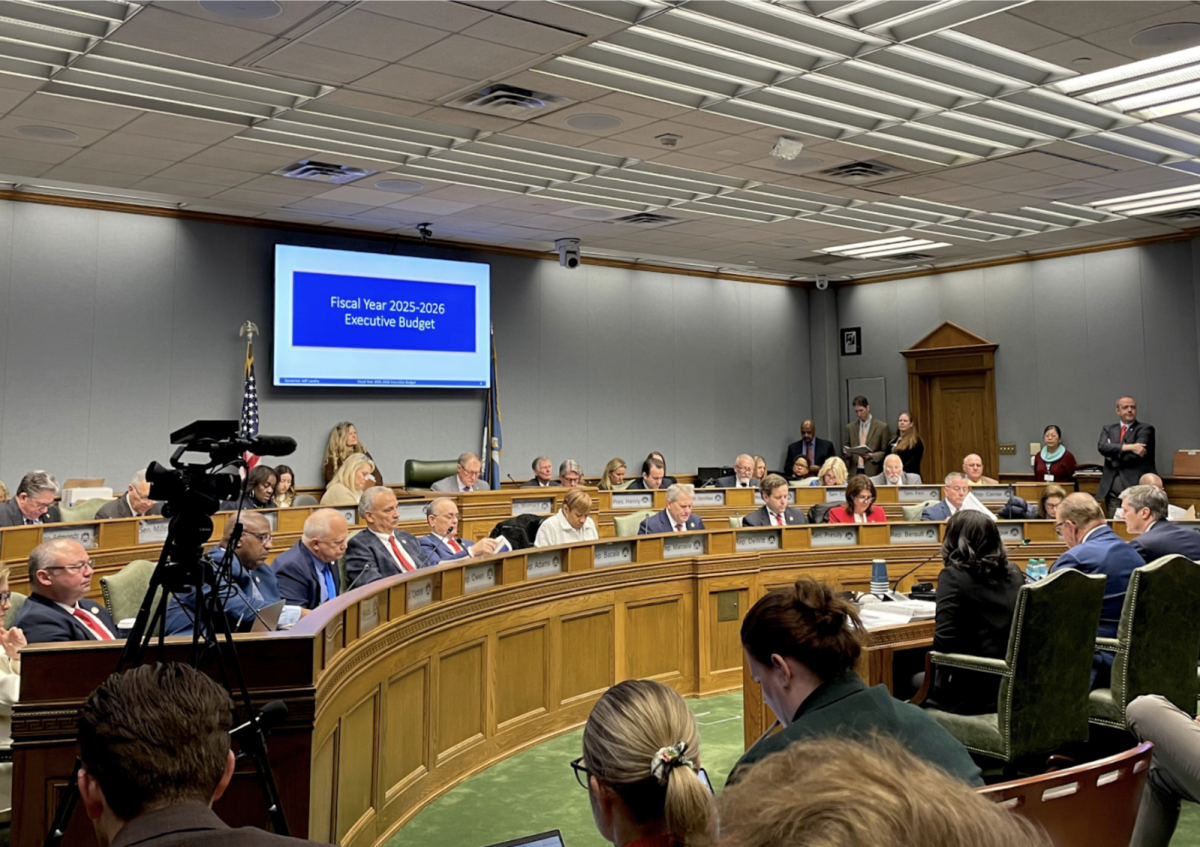Louisiana Higher Education Commissioner Joseph Rallo delivered an address Monday on how state colleges and universities will cope with expected budget cuts and potential solutions to offset the deficit.
Rallo said though the Board of Regents has been working closely with the Louisiana legislature to propose solutions in favor of higher education and create certainty for state colleges and universities, they can only offer ideas.
“It’s not our role to tell our legislature how to fund,” Rallo said. “It’s our role to give suggestions.”
Gov. Bobby Jindal announced a cut of $567 million to higher education Friday, but he said he is looking to reduce the cut to $141.3 million by altering state tax credit exemptions.
“We hope and we believe and we trust that those dollars will become available,” Rallo said.
Rallo discussed the question of tuition increases and said it’s highly unlikely any institution will raise its price for students.
Louisiana limits state colleges and universities to a 10 percent increase on tuition. Any further raise must have a two-thirds vote of approval from the Louisiana legislature.
Rallo said if a university increases its tuition by 10 percent, all TOPS eligible students will still be fully funded by TOPS money, which comes out of the state’s General Fund for other programs.
Privatization of public institutions is another option the board is looking into, although it’s not the most favorable, Rallo said.
Privatization of universities means more money coming from the pockets of parents and students, Rallo said, and he doesn’t want to lay the deficit in their hands.
Rallo also discussed audit autonomies. In Louisiana, the state is required to complete yearly audits on public colleges and universities, and every year the cost of those audits rises, Rallo said.
Something as simple as stabilizing costs of state colleges and universities could save higher education a significant amount of money, Rallo said.
If Jindal’s budget doesn’t pan out as expected, and the full $567 million dollars is taken from higher education in the final budget, Rallo said there may not be any option other than closing campuses.
“But they don’t get if you close an institution, the debt doesn’t just go away,” Rallo said of Louisiana legislators.
Rallo said the legislature thinks it will be saving money, but it doesn’t think about the payouts for employees and debt on buildings such as residence halls, which are paid for by students who pay rent to the universities.
The WISE Fund, a pool of money the University plans to use to hire faculty, is to be completely composed of Community Development Block Program dollars next year, which in the past were allocated strictly to hurricane relief.
Board of Regents Associate Commissioner of Finance Terrence Ginn said the question of re-allocating CDBG funds has come up.
“We’ll have to get really creative with shuffling those dollars around,” Ginn said.
Rallo said his goal is to leave Louisiana higher education institutions with more certainty about budgets than they have now, so employees can be hired, classes can be scheduled and programs can continue running
without worry.
Higher education took hard hits in every fiscal year budget proposal since 2008, and 2016 is no exception. Rallo said higher education institutions need to look to sustainable dollars because the budget crisis will continue.
Higher Education Commissioner Joseph Rallo addresses state budget cuts
March 2, 2015
Higher Education Comissioner Joseph Rallo speaks at Press Club Baton Rouge on Monday, March 2, 2015 at the Belle of Baton Rouge Hotel.
More to Discover



